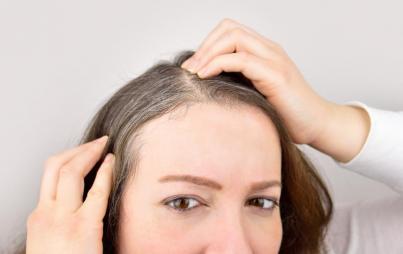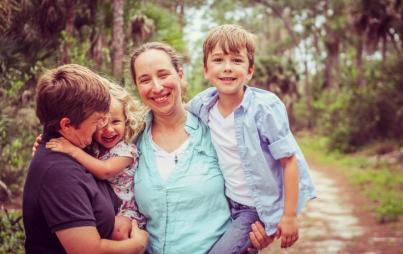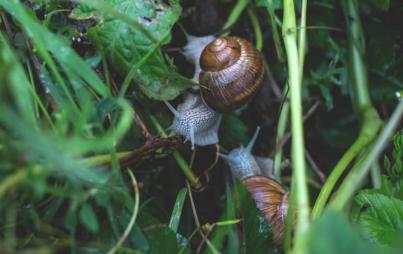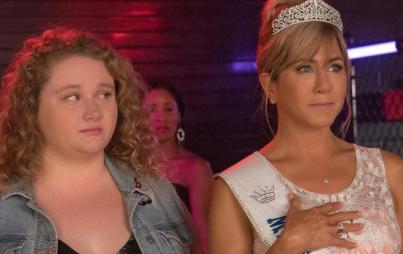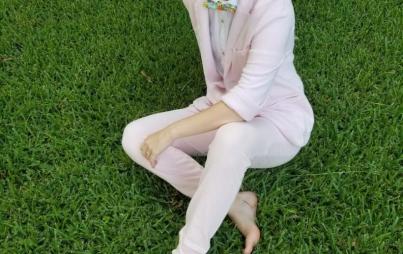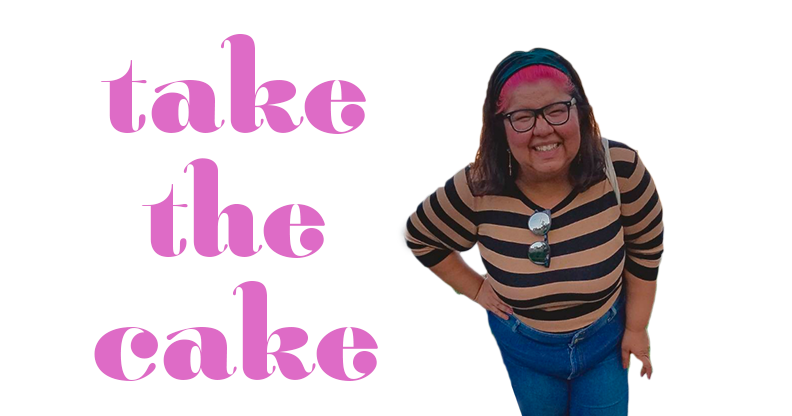
Fatness, femininity and hair! Photo credit: @virgietovar on Instagram
Recently a friend dyed my bangs hot pink. Javi is a hair stylist, and shortly after meeting me she made me swear that I would let her transform my look. We even shook on it.
I was excited. I’m kind of a hair and makeup bottom. Even though I style increasingly bold outfits with gusto, I have literally no idea what I’m doing with anything above my collar bones. Applying makeup makes me feel like I'm regressing to a clumsy toddler with the chubby crayons. Contouring is as much a mystery to me as linear algebra. So I loved the idea that someone else was taking the reins.
I thought I was ready for pink hair, but it turns out I wasn’t.
And a lot of my ill-preparedness had to do with gender.
Hair is a significant part of how we perform gender, convey political stances, and how others interact with us. I’ve had long, black hair for most of my life. When I was a little girl, my hair grew like a mane past my waist. I remember the older women at church would comment on how incredible my hair was, often telling me they wished they could have hair like mine. Hair that could barely be contained by elastic hair bands. I remember my mother’s and grandmother’s hands shaking from the strain of trying to put all my hair into a ponytail. Often, the band would snap, and they’d have to start over again.
You Might Also Like: Coming Out As Fat
In the years that I was a dieter, I remember hair changes feeling necessary as my weight changed. Once during college, I decided that I had lost enough weight to “treat” myself to a new haircut to match my “new body.” My self-hating, diet-addled brain desperately wanted a makeover to signify the end of my previous life – my former fat self. I think I believed my hair was a way to somehow force my body into staying smaller. Maybe I thought that if my hair didn’t look “right” on my fatter body, then I would feel the pressure to punish myself into maintaining my food restrictions.
I went to the salon near my place. It was in a little mall that was walking distance from my apartment. My stylist was severe and, in retrospect, kind of emotionally abusive, actually. I told her I wanted it short. Short! Short is bold. I had read in magazines that short hair was the sign of a confident woman. I was ready to be that woman. I had a very short bob. I even had the back of my head shaved a teensy bit. My grandmother hated my short hair, but my friends loved it, telling me that I had found my look.
I stopped dieting when I was introduced to fat activism. Hair re-appeared as a point of interest. I was surrounded by high femmes. Their cult of femininity completely dazzled me, and their vintage-inspired coifs roused inspiration. I was ready to take a new risk. I decided to grow my hair out and get choppy Bettie Paige-style bangs. Even that was a process. I was afraid to ask my new stylist (coincidentally also emotionally abusive) to give me bangs. As a fat woman, I had faced resistance from salons and stylists the world over. Like clothing, hair can be a way to create visibility or invisibility.
Thin women are encouraged to experiment with exposure. Fat women are not. I received a lot of pushback from hair professionals who had been taught to minimize my face by any means necessary.
It’s the over-sized black dress myth but for hair. It took several years and a lot of internal pep talks (I rehearsed the talk I gave to my stylist, in fact) before I got my throwback look.
That hair coupled with larger-than-life wayfarers was a marker of celebration for me. I loved my new look. And I haven’t really changed it since.
One of the things I have done for myself in adulthood as part of my healing process is make a strong claim to femininity.
Fast forward to hot pink bangs. I loved what the color represented to me: the refusal to conform, a claim to my right to own my body, an obvious marker of my radical politics — and a punky, harder femininity than I was used to. As I watched Javi transform my hair, a feeling I hadn’t anticipated started to come up – fear. I was afraid that I was making my fat body even more visible. As I’ve mentioned before, I feel hypervisible in the hostile, fitness-obsessed place I call home, San Francisco. But more importantly, I was afraid of how the pink made me feel about my gender presentation.
Growing up, I always felt like I wasn’t really a girl. I was mistreated by my guy friends, but my girl friends always expected me to pretend to be their boyfriend. None of the clothes in the girl section fit me. I felt like everything and everyone around me was questioning my femininity all the time. One of the things I have done for myself in adulthood as part of my healing process is make a strong claim to femininity. For me, that looks like dresses, nails, cleavage, and lipstick.
In some ways, I still feel like a gender outsider, a faker who has to assert her femininity every day — because the culture seeks to strip that from me every day.
I didn’t realize how large a role my hair played in my conception of myself as feminine, and how much I rely upon my femininity to feel like I can safely navigate a hostile culture.
I wasn’t ready. And I felt ashamed that I didn’t like how exposed my new look made me feel. I tried to talk myself through my discomfort. I do highly visible bold things all the time. Why was this different? The thing is: I realized that normally my bold acts re-assert my sense of femininity and this, somehow, didn’t. And it mattered to me. Holy shit. I was faced with my previously unseen investment in a particular kind of gender presentation. But it was deeper than that: I realized how much I used that sense of femininity as armor.
I was mad at myself for not being more grounded in my inherent worth, but I decided to practice compassion and dye it back to the color that felt comfortable. I didn’t choose to live in a culture that is hostile to my existence, and I’ve got to navigate it in a way that feels OK. But the experience forced me to face my reliance upon my gender performance to feel OK. I realized that my lifelong struggle with truly being seen had re-emerged in a way I hadn’t expected.
I’m interrogating my reaction. I keep coming back to a realization I had not too long ago — that the things which make us suffer are also things in which we have great investments. For now, I forgive myself and return to my (full) brunette lifestyle.



